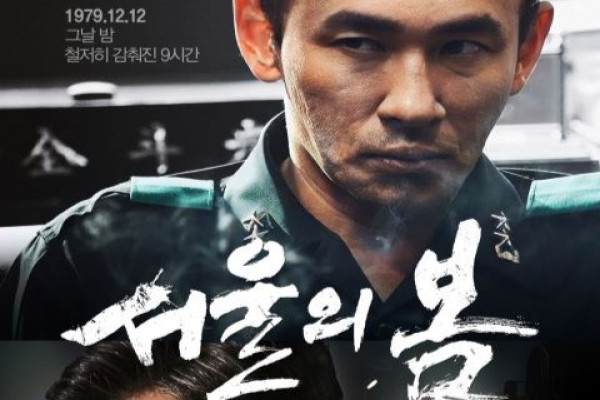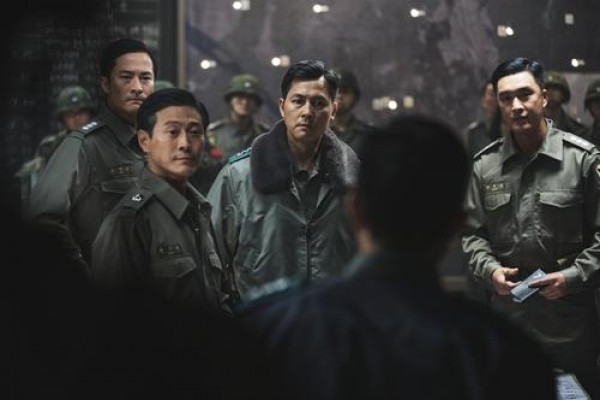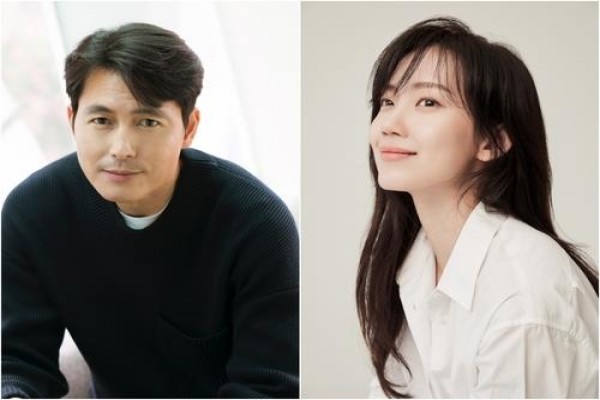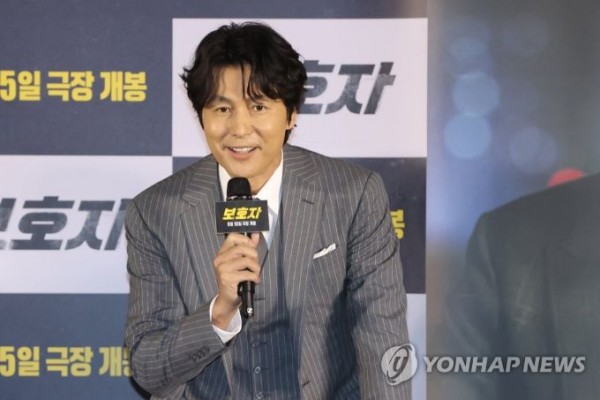130, Suyeonggangbyeon-daero,
Haeundae-gu, Busan, Republic of Korea,
48058
Director KIM Sung-soo of ASURA: THE CITY OF MADNESS
Nov 01, 2016
- Writerby KIM Hyung-seok
- View1673
This Hell-like World in which We Live

The audience response has been controversial. What kind of response did you expect?
Some people found it disturbing to the extent that they felt almost paralyzed. But that's exactly the kind of movie that I wanted to make. Not the kind of movie that you can comfortably enjoy while eating popcorn, but something that you have to stay focused on right through to the end. I asked LEE Mo-gae, the cinematographer, to make the audience feel as if the film characters are right next to them, feeling their breath.
It has an urban setting, where the characters are driven to catastrophic extremes, which is ridden with violence and death. It is reminiscent of your 1990s films like Run Away (1995), Beat and City of the Rising Sun (1999).
I was born in a city and heavily informed with urban elements. But as I reached the 1980s, I could not help but think that metropolises in Korea are more like a human zoo. A zoo is not a happy place for animals. Every animal in there is mentally sick. What we see there are crazy animals which have lost their real selves. A city may look like an optimal place for people to live, but in fact, it isn’t. It keeps on tapping on human desire and escalates it, and somebody rules this place. Isn't every one of us in the city mentally sick? Our inner selves are damaged and deprived of the real essence. Whether you win or lose in the city, everyone becomes increasingly crazy.

Your life path has been quite different since the 1990s. You made the epic Musa-The Warrior (2001), you also made the romantic comedy Please Teach Me English (2003) and then there was a ten-year gap in your career. Recently you made the disaster movie Flu (2013). Now, here you are with Asura. What made you return to your past world?
I realized that I won't have that many more opportunities to make a film. So I wanted to tell the story that I wanted to tell, in the genre that I wanted to make. So that's how I have returned to the crime action genre, yet I still wanted to make it a little different. This genre is basically a battle between good and evil, where the evil uses violence and the good inevitably uses violence to restore justice. That is where the audience can feel pleasure as they support the good. It is a world firmly caught in a dichotomy, which I wanted to add a little twist to. The reason is simple: it isn’t reality. Justice never vanquishes evil in the real world. I did not want to please the audience in an old-fashioned way.
I hear the original title of the scenario was Regret. It seems Asura is a regretful return to your 1990s films that only showed the surface of the truth.
Back then I was full of spirit to make films. Along the way, I received many investment opportunities and also became famous. Believing that I'd do great, I tried a lot of things. But then I realized that I kept adjusting myself to please others. I had no chance to make what I really wanted to make. This film is a self-contemplation and also a contemplation on society. You have to feel regret when you have done something wrong. However, those in power do not do so. They are in power because we have let them have power, but power has somehow become something above the law, and those in power never acknowledge their wrongdoing. They just tell us to follow them, confident that they are right. Those with such beliefs rule the world. I named it Regret at first as a warning to those who never regret their wrongdoing.
That is why Mayor PARK (HWANG Jung-min) is interesting. He is incredibly self-confident. He is like a monster created by people's meaningless desire.
There is a huge gap between PARK's ambitious city blueprint and reality. We've seen a lot of it. Some people excite others with pure lies and make a mess of the environment under the name of development. Some people benefit from this process. In a way, the world is becoming worse and worse.

You wanted 100% control of the cinematic setting. Did you want to create the right space for a genre movie?
I tried not to enter a space where I could not have control. We went for space which shows the ravages of time, at least 40 years or more. It is a corrupt, rugged and dark space which has to be remodeled. No stage art is as perfect as an aged location. I wanted a claustrophobic kind of feeling for the shooting. We first used a wide angle lens but later on, we used a telephoto lens to capture the characters in the space because we wanted to chase them to the corners of their world.
What visual references did you use?
With the cinematographer, I had some great still pictures from famous noir films displayed on the wall, because that is what I wanted to make. Then I got to see Magnum reportage pictures. They are on real crime scenes, which made the film stills look childish. So I took them all down and displayed the Magnum pictures instead. What they had in common was the great contrast between the light and dark and the excited and scared facial expressions of the criminals. It was absolutely overwhelming.
And at the same time, they had an exotic feeling. Some pictures remind us of Blade Runner, unrealistic and fantasy-like.
I wanted to create the feeling that the city does not belong to any nation. I used exotic music from India and Turkey and juxtaposed familiar images with unfamiliar colors and designs. I wanted to evoke a "Where am I?" kind of feeling.

You sense a strong hierarchical food chain between the characters. The whole film seems to consist of these cold chains, with no human warmth.
I only wanted a trace of human relationships and no more. Whether intentional or not, as soon as you become a part of the violent world, you are internalized within the structure as well. You make your relationships with others within this violent power hierarchy. All you have in the film is the power, violence and exploitation dynamics. In fact, the story of Asura is rather typical and there is nothing special about it. I wanted to show how these relationships are easily broken and can vanish. I wanted an exact portrait of it.
Sometimes the characters receive a taste of their own medicine.
HAN Do-kyoung (JUNG Woo-sung) experiences exactly what he did to Jakdaegi (KIM Won-hae ). What he told to MOON Seon-mo (JU Ji-hoon) also comes back to him. KIM Cha-in (KWAK Do-won) hears from Mayor PARK what he told to HAN. It is like a boomerang. In a viciously violent relationship, I wanted to show where it all ends up.
You have worked with JUNG Woo-sung for a long time. You might as well call him the director's own persona. He completes a great transformation in this film. What did you exactly want from him?
It is true that I created the HAN character with JUNG in mind. However, I kept asking myself "Does this character really fit JUNG?" So I made this assumption. If JUNG in Beat was still alive, after a lot of suffering, he might have become a cop and lived like this, but he would still hate the world. The HAN character that JUNG plays is a bad guy but not a typical one. He became evil not because he wanted to but for sheer survival.
There is no lesson, no hope, no beauty in the film. No compromise whatsoever.
I don't think that a single crime action film can perfectly reflect reality. I just wanted to show the bleak and bloody ruins. Everyone told me that the film wouldn’t be successful. But J.D. HAN, the producer, said he liked it. We could not believe our ears. (laughs) He said he wanted a different movie, even if only a little. Some think the ending is too cruel and meaningless, but at least we may have one film like this. And… how could you ever escape hell? You can't. Nobody can.























